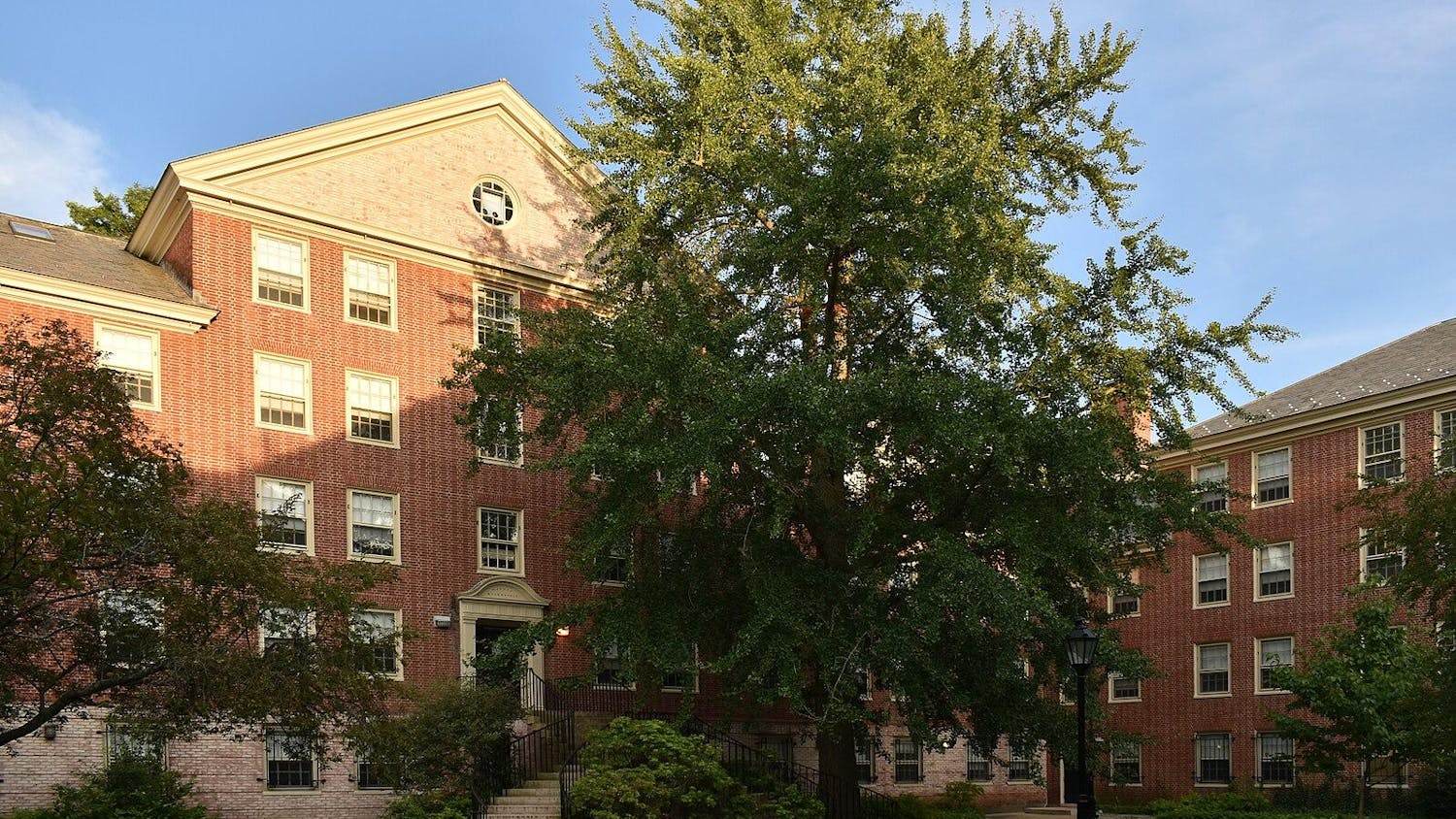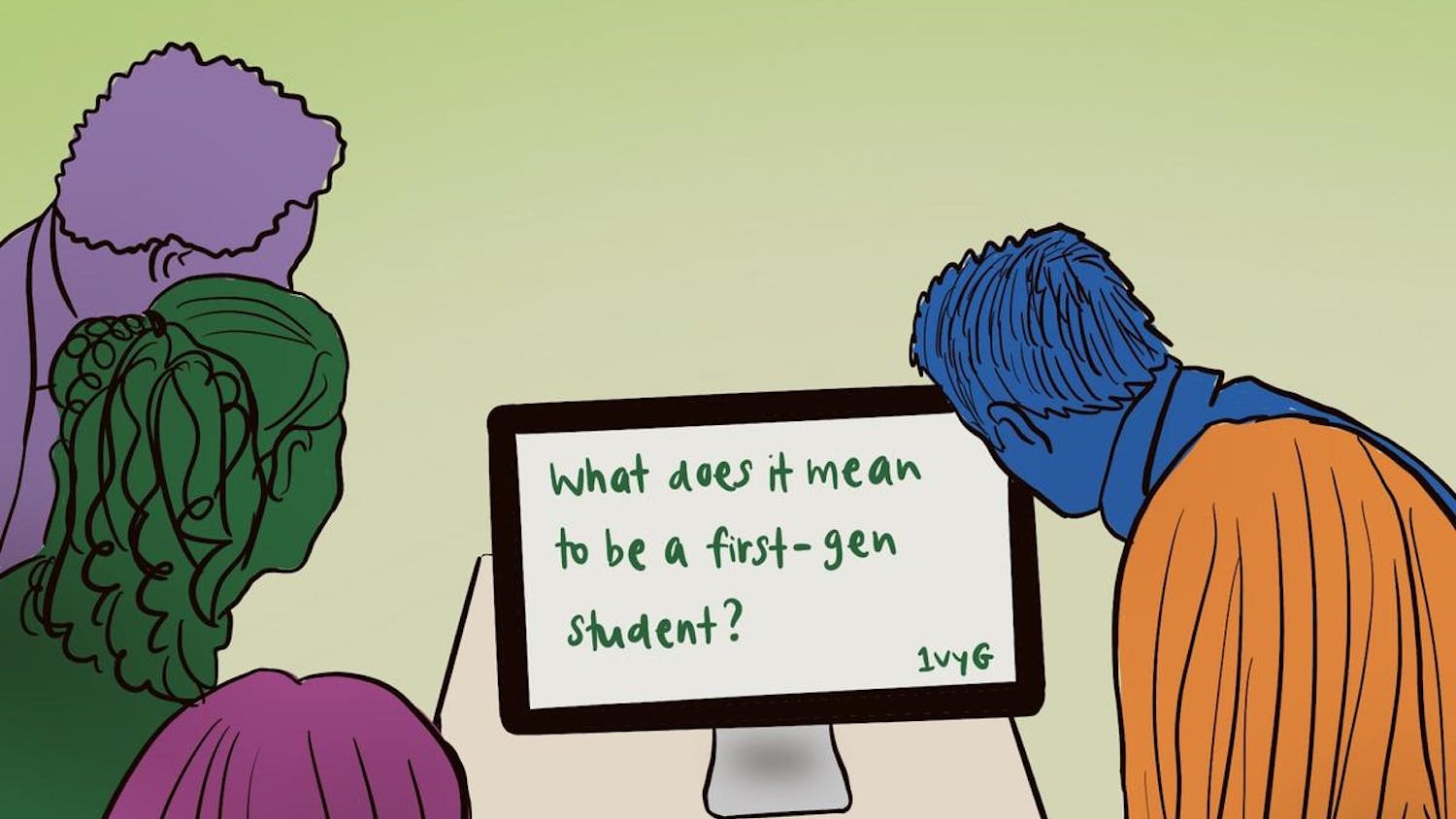Most college students rarely have the opportunity to help craft nine-figure institutional budgets. But five Brown students — the student representatives to the University Resources Committee — do just that as they advise senior administrators on the University's annual budget.
The committee, chaired by Provost David Kertzer '69 P'95 P'98, is responsible for drawing up budget recommendations for the president to present to the Corporation, Brown's highest governing body. The URC consists of six elected faculty members, two staff members, five senior administrators — including Kertzer; Rajiv Vohra P'07, dean of the faculty; Dick Spies, executive vice president for planning and senior adviser to the president; Beppie Huidekoper, executive vice president for finance and administration; and Lindsay Graham, executive dean for administration for the Division of Medicine and Biological Sciences — and five student representatives, consisting of two undergraduate students, two graduate students and one medical student.
Starting in April of each year and continuing through January, the URC holds two-hour meetings during which University department heads present their priorities and requests for the following year's budget, Kertzer said. The committee then holds private sessions in which members discuss the suggestions and requests of University administrators and department heads.
"We look at how the things they are asking for match up with the funding we have available," said Chaney Harrison '11, whose term as URC student representative ended last month. "It's like a puzzle. We just try to put the pieces together in a way that is most beneficial to the institution."
In late January, the committee gives its recommendations to President Ruth Simmons. She then examines them and makes any changes she sees fit before presenting the budget to the Corporation at its February meeting.
"Usually she sticks pretty closely to our recommendations," Kertzer said.
Undergraduates apply to serve on the committee at the beginning of the spring semester and are appointed by the Undergraduate Council of Students, according to UCS
Appointments Chair Kening Tan '12. The council interviews applicants, and decisions are approved by both the council's executive board and its general body, Tan said. The URC plays no role in the appointment of its members.
Committee members said applicants must be thoughtful, outspoken and able to analyze the University's budget as a whole.
"You want someone who is conscientious, because there's a lot of work and it's a big time commitment," Kertzer said.
"We want someone who is not afraid to speak up despite the fact that they are surrounded by faculty, the provost and various vice presidents," he said. "Our members have to take a broader view of both the student interests and the University's overall welfare. We don't want someone who is interested in theater, and all they can think about is how theater needs more resources."
Arthur Matuszewski '11,a former Post- magazine editor-in-chief who is currently serving two terms as an undergraduate representative on the committee, also spoke of the unselfish qualities representatives must share.
"You are not just here for your interest group," he said. "You are here for the University."
Tan agreed. "We definitely want people who have a very good sense of campus issues and who are willing to learn about the whole allocation of University resources," she said. "We need very motivated people who will give valuable advice to the committee."
Committee members said students' input is valued just as much as the input of any other URC member.
"Students' perspectives are always highly valued by the Committee," Kertzer said.
"You really have a voice," Harrison said. "People listen to you."
He added that students are included in every aspect of the budget deliberation process, from the presentations by senior administrators to the private sessions to the drafting process.
Both Harrison and Matuszewski noted the uniqueness of serving on the URC and said it had added value to their overall involvement at Brown.
"For me, it was an absolutely incredible experience in gaining a perspective on how an institution like Brown runs and functions," Harrison said.
"A lot of the questions raised by the URC allow you to think about the whole of Brown rather than taking a microcosmal look," Matuszewski said.
"There's a lot of ‘who are we' and ‘who do we want to be' type questions that you don't see raised elsewhere in the University," he said. "We have to decide what really makes sense for Brown."
Matuszewski and Harrison both expressed disappointment in the lack of interest and participation of other students and faculty in the URC and similar committees.
"It's an exciting moment when faculty are interested in what I'm doing on the committee, and sometimes it's a little disappointing to not see a certain level of curiosity about what I'm doing," Matuszewski said.
The URC holds two public forums each fall where students and faculty can ask committee members about "what they are doing and what we are in for," Matuszewski said. He noted that last fall the first forum had five people in attendance and the second had only two.
"Seeing them unattended, seeing a general disinterest for them, was perhaps emblematic of a disconnect between the impact of the work we are doing and the consciousness of the University at large," he said.
Harrison had similar complaints.
"At Brown we talk about being involved, we talk about participating in community, but it bothers me how few people apply to these positions," he said. "It is important that the student voice is listened to."
But Matuszewski said his experience on the URC has given him new perspective on Brown and his education.
"You realize how complicated an institution the University actually is," he said. "We see the many different processes at work, the questions about what is the University's main function, not just to itself but for society at large."
"I've become more conscious of the value of my education and what has been put into it by all these parties on campus," he said.
UCS approved the appointment of Evan Schwartz '13 as Harrison's successor on the committee at their Feb. 17 general body meeting.
"It is one thing to discuss philosophy but another to figure out where you're going to put your money, because that is what will ultimately determine the University's priorities and direction," Schwartz wrote in an e-mail to The Herald.
"I don't have strong opinions as of yet as to what our priorities should be," he wrote. "But I was and am very much looking forward to being part of the discussion and learning more about Brown's history and current issues."




